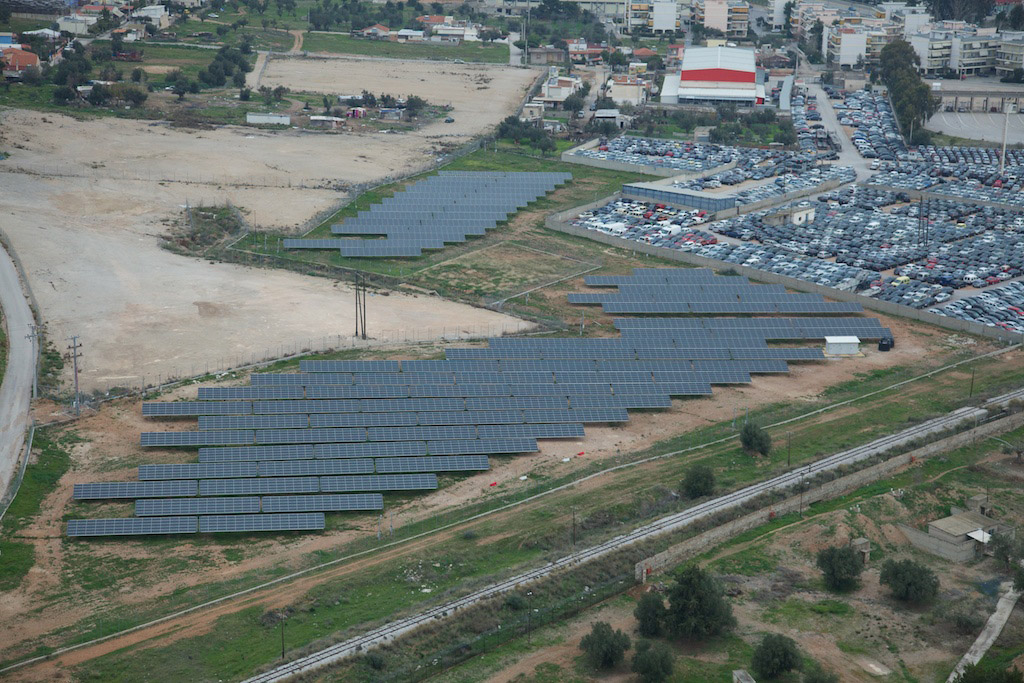Greece’s Hellenic Petroleum, a company that focuses mainly on the supply, refining and trading of petroleum products in Greece and abroad, has installed the country’s first large-scale, ground-mounted PV installations since 2015.
The newly added capacity comprises two PV plants of 1 MW and 4 MW each respectively, while a third 3.6 MW PV plant is also installed and will connect to the grid in the following days.
pv magazine reported in June that Hellenic Petroleum had secured financing to develop 190 MW of combined solar PV and wind power capacity in Greece.
This is not to suggest that Hellenic Petroleum has achieved an innovative business model that allows it to install subsidy-free PV plants. The company has only used Greece’s new policy framework for the support of renewable energies. The new policy is based on auctions and rewards successful projects with feed-in premiums. Greece’s inaugural tender under the new policy scheme ran in December 2016, awarding 40 MW of projects.
All in all, this is a rather significant step for Hellenic Petroleum, which is not famous for its engagement with renewable energies. Hellenic Petroleum Renewable Energy Sources, a wholly owned subsidiary of the parent company, was founded in 2006 aiming to invest in renewable energies, but until a few weeks ago the company had installed a mere 1.4 MW of photovoltaics and 7 MW of wind power capacity.
Hellenic Petroleum’s new 1 MW plant was connected to the grid 8 months ahead of the time specified in the auction rules, while the two larger plants were built 14 months ahead of a similar time requirement.
Another company that failed massively to engage with renewable energies under the old scheme based on generous feed-in tariffs, is Greece’s incumbent utility PPC. Similar to Hellenic Petroleum, the PPC has also announced belated plans to invest is solar, however PPC’s strategy is far from secure because the company has not been awarded tender projects.
Greece’s government has not announced a new renewable energy auction, however some solar PV activity also takes place in the country via its net metering scheme.
This content is protected by copyright and may not be reused. If you want to cooperate with us and would like to reuse some of our content, please contact: editors@pv-magazine.com.



By submitting this form you agree to pv magazine using your data for the purposes of publishing your comment.
Your personal data will only be disclosed or otherwise transmitted to third parties for the purposes of spam filtering or if this is necessary for technical maintenance of the website. Any other transfer to third parties will not take place unless this is justified on the basis of applicable data protection regulations or if pv magazine is legally obliged to do so.
You may revoke this consent at any time with effect for the future, in which case your personal data will be deleted immediately. Otherwise, your data will be deleted if pv magazine has processed your request or the purpose of data storage is fulfilled.
Further information on data privacy can be found in our Data Protection Policy.